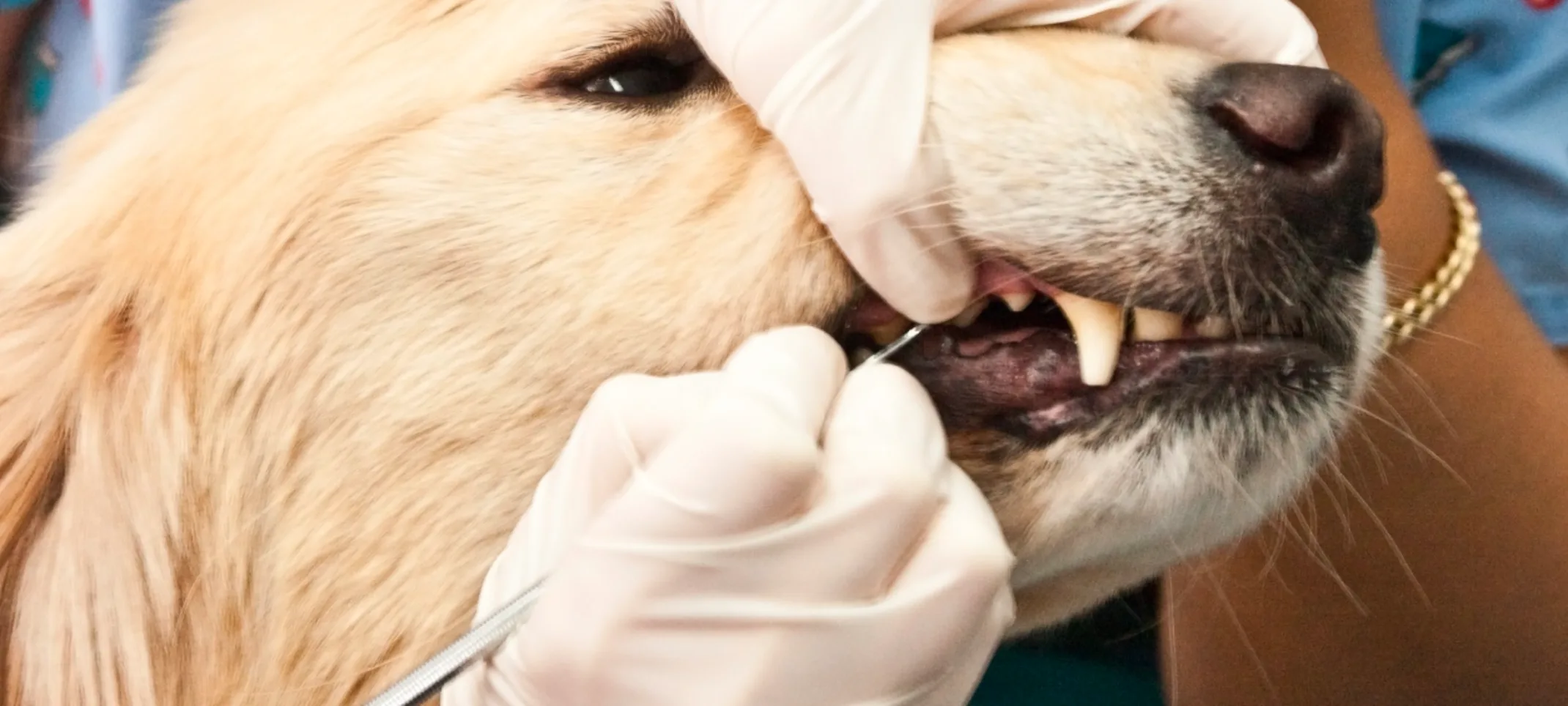I-20 Animal Medical Center
Dental Extractions

Pet tooth extractions are often necessary for removing damaged or diseased teeth. But while they’re common in veterinary and human dental care, extractions are very serious business for all dentists, human and veterinarian. More can go wrong with this procedure than almost all other dental treatments combined! That’s why we have Dr. Bloom on staff at I-20 Animal Medical Center. We’re always here to diagnose and treat pet dental issues with the utmost care.
Potential complications prior to pet dental extractions:
What is the proper diagnosis of the problem? Is it just a simple extraction, or an oronasal fistula, or some other draining tract that simply won’t heal after the removal of the offending tooth?
Are there blood work abnormalities that are contraindications for general anesthesia? Is the pet diabetic?
Is the tooth periodontally involved or is there a long-term cyst formation at the apex of the tooth?
Will this extraction damage adjacent structures such as nerves, blood vessels, bone or sinuses? On the maxilla, sinus perforations are a real danger, and on the lower jaw, the mandibular canal innervates the entire jaw. If it’s damaged, the pet will never feel their lower jaw again.
Is there infection, cancer, chronic non-healing ulcerations or any other autoimmune deficiency present in the pet that could prevent proper healing?
Are there any root structure issues present, such as bulbous roots, curved roots or roots that stick up into the sinuses or down into the mandibular canal?
As you can see, there is a myriad of issues that your veterinarian might not be familiar with before you even get started. A veterinary dentist and your human dentist or oral surgeon look at all these issues very closely before extracting any teeth!
At I-20 Animal Medical Center, we consider all these potential complications before extracting any teeth.
Possible complications during pet dental extractions:
The most common complication to occur during a pet dental extraction is a root fracture. Roots on teeth can be very fragile. Any wrong or excessive force can easily break root tips, which are then challenging to remove. A root tip left in place can create ongoing problems if it’s not removed. Chronic infection, bone destruction, cyst formation and a perpetual drainage tract are just a few of the problems caused by retained infected root tips. It is easy to push a root tip into the sinuses or worse yet, into the mandibular canal. We must delicately remove surrounding bone to get the proper instrumentation into a boney socket for root tip retrieval. There are very few veterinarians with this kind of training unless they are specialists in dentistry or have done a multi-year residency program in dental procedures. Dr. Bloom at I-20 Animal Medical Center is experienced in these kinds of time-intensive and careful dental procedures.
Cutting of a nerve or artery. Very common and very easy to do on lower premolars. Bone necrosis due to heat, inappropriate or aggressive cutting or inadvertent fracture of the alveolar plate.
Damage to adjacent pet teeth from elevators or drill bits.
Excessive bleeding.
Dry socket or non-healing wounds.
Oronasal fistula (a communication or hole between the mouth and the sinuses).
Jaw fractures. These are very common when extraction protocols are violated.
At I-20 Animal Medical Center, we consider all these potential complications before extracting any teeth.
Possible complications after dental extractions:
Non-healing sockets.
Non-closure of oronasal fistulas.
Damaged adjacent teeth becoming non-vital (dead).
Excessive bleeding.
Nerve damage.
Infection and swelling.
Non-union of bone following a mandibular fracture or a cortical plate fracture.
All of these potential complications are why we take extractions very seriously at I-20 Animal Medical Center.
To schedule veterinary dental care at I-20 Animal Medical Center, give us a call at 817.478.9238.
Dr. Ken Karger, DDS
Dr. Bonnie Bloom, DVM, Fellow in the Academy of Veterinary Dentistry
